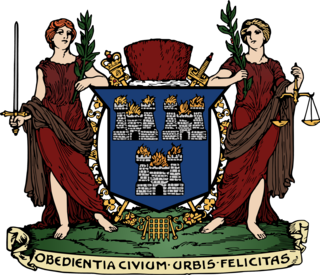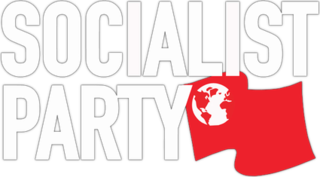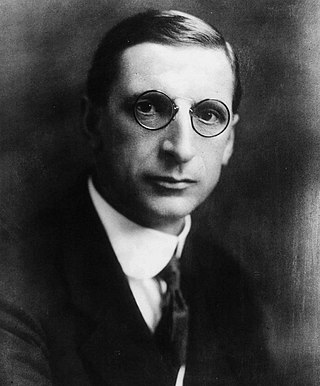| |||||||||||||||||||||||||||||||||||||||||||||||||||||||||||||||||||||||||||||||||||||
| Turnout | 63.60% | ||||||||||||||||||||||||||||||||||||||||||||||||||||||||||||||||||||||||||||||||||||
|---|---|---|---|---|---|---|---|---|---|---|---|---|---|---|---|---|---|---|---|---|---|---|---|---|---|---|---|---|---|---|---|---|---|---|---|---|---|---|---|---|---|---|---|---|---|---|---|---|---|---|---|---|---|---|---|---|---|---|---|---|---|---|---|---|---|---|---|---|---|---|---|---|---|---|---|---|---|---|---|---|---|---|---|---|---|
| |||||||||||||||||||||||||||||||||||||||||||||||||||||||||||||||||||||||||||||||||||||
The 1979 Irish local elections were held in all the counties, cities and towns of Ireland on Thursday, 7 June 1979, on the same day as the first direct elections to the European Parliament.
| |||||||||||||||||||||||||||||||||||||||||||||||||||||||||||||||||||||||||||||||||||||
| Turnout | 63.60% | ||||||||||||||||||||||||||||||||||||||||||||||||||||||||||||||||||||||||||||||||||||
|---|---|---|---|---|---|---|---|---|---|---|---|---|---|---|---|---|---|---|---|---|---|---|---|---|---|---|---|---|---|---|---|---|---|---|---|---|---|---|---|---|---|---|---|---|---|---|---|---|---|---|---|---|---|---|---|---|---|---|---|---|---|---|---|---|---|---|---|---|---|---|---|---|---|---|---|---|---|---|---|---|---|---|---|---|---|
| |||||||||||||||||||||||||||||||||||||||||||||||||||||||||||||||||||||||||||||||||||||
The 1979 Irish local elections were held in all the counties, cities and towns of Ireland on Thursday, 7 June 1979, on the same day as the first direct elections to the European Parliament.
| Party | Seats | ± | 1st pref | FPv% [1] | ±% | |
|---|---|---|---|---|---|---|
| Fianna Fáil | 328 | 529,909 | 39.0 | |||
| Fine Gael | 292 | 469,074 | 34.6 | |||
| Labour | 75 | 160,684 | 11.8 | |||
| Sinn Féin (Provisional) [a] | 11 | 21,273 | 1.6 | |||
| Sinn Féin The Workers' Party | 7 | 31,238 | 2.3 | |||
| Independent Fianna Fáil | 4 | 10,245 | 0.8 | |||
| Protestant Association | 2 | 1,912 | 0.1 | |||
| Donegal Progressive Party | 1 | 1,728 | 0.1 | New | ||
| Independent Socialist Party | 1 | 675 | 0.0 | New | ||
| Independent | 48 | 120,166 | 8.5 | |||
| Total | 1,421,494 | 100 | — | |||
| Authority | FF | FG | Lab | SF (P) | SFWP | Other | Total | ||||||
|---|---|---|---|---|---|---|---|---|---|---|---|---|---|
| Carlow | 8 | 9 | 3 | 1 | 21 | ||||||||
| Cavan | 12 | 11 | 1 | 1 | 25 | ||||||||
| Clare | 17 | 9 | 2 | 1 | 2 | 31 | |||||||
| Cork City | 13 | 12 | 4 | 1 | 1 | 31 | |||||||
| Cork County | 23 | 18 | 3 | 1 | 2 | 47 | |||||||
| Donegal | 10 | 6 | 5 | 1 | 1 | 5 [b] | 23 | ||||||
| Dublin City | 12 | 15 | 11 | 1 | 6 [c] | 45 | |||||||
| Dublin | 12 | 14 | 9 | 1 | 36 | ||||||||
| Galway | 14 | 11 | 1 | 2 | 2 | 30 | |||||||
| Kerry | 14 | 7 | 2 | 1 | 2 | 26 | |||||||
| Kildare | 9 | 8 | 4 | 21 | |||||||||
| Kilkenny | 11 | 10 | 4 | 1 | 26 | ||||||||
| Laois | 11 | 12 | 2 | 25 | |||||||||
| Leitrim | 11 | 9 | 1 | 21 | |||||||||
| Limerick City | 6 | 5 | 4 | 2 | 17 | ||||||||
| Limerick County | 15 | 11 | 1 | 27 | |||||||||
| Longford | 8 | 9 | 2 | 2 | 21 | ||||||||
| Louth | 10 | 8 | 2 | 1 | 1 | 4 | 26 | ||||||
| Mayo | 15 | 16 | 31 | ||||||||||
| Meath | 13 | 9 | 5 | 2 | 29 | ||||||||
| Monaghan | 9 | 8 | 3 [d] | 20 | |||||||||
| Offaly | 10 | 9 | 1 | 1 | 21 | ||||||||
| Roscommon | 12 | 12 | 1 | 1 | 26 | ||||||||
| Sligo | 10 | 11 | 1 | 2 | 24 | ||||||||
| Tipperary North | 8 | 8 | 4 | 1 | 21 | ||||||||
| Tipperary South | 11 | 8 | 4 | 3 | 26 | ||||||||
| Waterford City | 5 | 4 | 2 | 2 | 2 | 15 | |||||||
| Waterford County | 9 | 11 | 1 | 21 | |||||||||
| Westmeath | 10 | 9 | 3 | 1 | 23 | ||||||||
| Wexford | 10 | 7 | 2 | 2 | 21 | ||||||||
| Wicklow | 7 | 8 | 4 | 1 | 1 | 21 | |||||||
| Authority | FF | FG | Lab | PSF | SFWP | Other | Total | ||||||
|---|---|---|---|---|---|---|---|---|---|---|---|---|---|
| Clonmel | 4 | 4 | 3 | 1 | 12 | ||||||||
| Drogheda | 3 | 2 | 3 | 4 | 12 | ||||||||
| Dún Laoghaire | 3 | 8 | 4 | 15 | |||||||||
| Galway | 5 | 1 | 1 | 5 | 12 | ||||||||
| Kilkenny | 4 | 3 | 3 | 2 | 12 | ||||||||
| Sligo | 3 | 4 | 2 | 3 | 12 | ||||||||
| Wexford | 3 | 1 | 2 | 1 | 5 | 12 | |||||||

Dublin City Council is the local authority of the city of Dublin in Ireland. As a city council, it is governed by the Local Government Act 2001. Until 2001, the authority was known as Dublin Corporation. The council is responsible for public housing and community, roads and transportation, urban planning and development, amenity and culture and environment. The council has 63 elected members and is the largest local council in Ireland. Elections are held every five years and are by single transferable vote. The head of the council has the honorific title of Lord Mayor. The city administration is headed by a chief executive, Richard Shakespeare. The council meets at City Hall, Dublin.

The Socialist Party is a political party in Ireland, active in both the Republic of Ireland and Northern Ireland. Internationally, it was affiliated to the Trotskyist International Socialist Alternative until 2024.

Republican Sinn Féin or RSF is an Irish republican political party in Ireland. RSF claims to be heirs of the Sinn Féin party founded in 1905; the party took its present form in 1986 following a split in Sinn Féin. RSF members take seats when elected to local government in the Republic of Ireland, but do not recognise the validity of the Partition of Ireland. It subsequently does not recognise the legitimacy of the parliaments of Northern Ireland (Stormont) or the Republic of Ireland, so the party does not register itself with them.

The 2004 Irish local elections were held in all the counties, cities and towns of Ireland on Friday, 11 June 2004, on the same day as the European elections and referendum on the amending the constitutional provisions on citizenship. Polling was delayed until 19 June 2004 in County Roscommon, due to the sudden death of Councillor Gerry Donnelly.
In Ireland, direct elections by universal suffrage are used for the President, the ceremonial head of state; for Dáil Éireann, the house of representatives of the Oireachtas or parliament; for the European Parliament; and for local government. All elections use proportional representation by means of the single transferable vote (PR-STV) in constituencies returning three or more members, except that the presidential election and by-elections use the single-winner analogue of STV, elsewhere called instant-runoff voting or the alternative vote. Members of Seanad Éireann, the second house of the Oireachtas, are partly nominated, partly indirectly elected, and partly elected by graduates of particular universities.

The functions of local government in the Republic of Ireland are mostly exercised by thirty-one local authorities, termed County, City, or City and County Councils. The principal decision-making body in each of the thirty-one local authorities is composed of the members of the council, elected by universal franchise in local elections every five years from multi-seat local electoral areas using the single transferable vote. Many of the authorities' statutory functions are, however, the responsibility of ministerially appointed career officials termed Chief executives. The competencies of the city and county councils include planning, transport infrastructure, sanitary services, public safety and the provision of public libraries. Each local authority sends representatives to one of three Regional Assemblies.
Independent Fianna Fáil (IFF), sometimes called the Independent Fianna Fáil Republican Party, was a splinter republican party in the Republic of Ireland created by Neil Blaney after his expulsion from Fianna Fáil following the Irish Arms Crisis (1969–1970). The party ceased to exist on 26 July 2006. It was never an officially registered political party: Niall Blaney said in 2003 "I am an Independent and a member of an organisation known locally as Independent Fianna Fáil". Its candidates were listed on ballot papers without a party label, or the use of the "Non-party" label available to independents. However, the Oireachtas members' database lists Independent Fianna Fáil members separately.
Dublin University is a university constituency in Ireland, which elects three senators to Seanad Éireann, the senate of the Oireachtas. Its electorate comprises the undergraduate scholars and graduates of the University of Dublin, whose sole constituent college is Trinity College Dublin, so it is often also referred to as the Trinity College constituency. Between 1613 and 1937 it elected MPs or TDs to a series of representative legislative bodies.

Fingal County Council is the local authority of the county of Fingal, Ireland. It is one of three local authorities that succeeded the former Dublin County Council on abolition on 1 January 1994 and is one of four local authorities in County Dublin. As a county council, it is governed by the Local Government Act 2001. The council is responsible for housing and community, roads and transport, urban planning and development, amenity and culture, and environment. The council has 40 elected members. Elections are held every five years on the electoral system of proportional representation by means of the single transferable vote (PR-STV). The head of the council has the title of Mayor. The county administration is headed by a chief executive, AnnMarie Farrelly. The county town is Swords.

South Dublin County Council is the local authority of the county of South Dublin, Ireland. It is one of three local authorities created by the Local Government (Dublin) Act 1993 to succeed the former Dublin County Council before its abolition on 1 January 1994 and one of four councils in County Dublin. As a county council, it is governed by the Local Government Act 2001. The council is responsible for housing and community, roads and transportation, urban planning and development, amenity and culture, and environment. The council has 40 elected members. Elections are held every five years and are by single transferable vote. The head of the council has the title of Mayor. The county administration is headed by a chief executive, Daniel McLoughlin. The county town is Tallaght, with a civic centre at Monastery Road, Clondalkin. It serves a population of approximately 192,000.

The 2009 Irish local elections were held in all the counties, cities and towns of Ireland on Friday, 5 June 2009, on the same day as the European Parliament election and two by-elections.
The 1985 Irish local elections were held in all the local government areas on Thursday, 20 June 1985.

Elections were held in January and June 1920 for the various county and district councils of Ireland. The elections were organised by the Dublin Castle administration under the law of the then United Kingdom of Great Britain and Ireland (UK), and held while the Irish War of Independence was pitting UK forces against those of the Irish Republic proclaimed in 1919 by the First Dáil. Elections were held in two stages: borough and urban district councils in January; and county and rural district councils in June. Sinn Féin, which had established the First Dáil, won control of many of the councils, which subsequently broke contact with Dublin Castle's Local Government Board for Ireland and instead recognised the republican Department of Local Government. The election results provide historians with a barometer of public opinion in what would be the last elections administered on an all-island basis: the Government of Ireland Act 1920 passed at the end of the year effected the partition of Ireland from 1921, though the elections for the two home rule Parliaments envisaged by it were held on the same day; no further elections would be held simultaneously across the island of Ireland until 1979, when representatives of the Republic of Ireland and Northern Ireland to the European Parliament were elected. The next local elections were held in 1924 in Northern Ireland and in 1925 in the Irish Free State.

The 1974 Irish local elections were held in counties, cities and towns of Ireland to elect the councils of all local authorities in the country on Tuesday, 18 June 1974.
The Local Government Reform Act 2014 is an act of the Oireachtas which provided for a major restructuring of local government in Ireland with effect from the 2014 local elections. It merged some first-tier county and city councils, abolished all second-tier town and borough councils, and created a new second tier of municipal districts covering rural as well as urban areas. It also provided for a plebiscite on whether to create a directly elected executive Mayor of the Dublin Metropolitan Area although this provision was not activated. The act was introduced as a bill on 15 October 2013 by Phil Hogan, the Minister for the Environment, Community and Local Government, and signed into law on 27 January 2014 by President Michael D. Higgins. Most of its provisions came into force on 1 June 2014.

Independents 4 Change is an Irish political alliance, with registration as a political party, comprising several independent politicians. It had two MEPs in the Ninth European Parliament: Clare Daly and Mick Wallace.

The Social Democrats are a social democratic political party in Ireland. Led by Holly Cairns since March 2023, the party was launched on 15 July 2015 by three independent TDs: Catherine Murphy, Róisín Shortall, and Stephen Donnelly. It promotes the Nordic model of political economy and pro-European views.

The 2019 Irish local elections were held in all local authorities in Ireland on Friday, 24 May 2019, on the same day as the 2019 European Parliament election and a referendum easing restrictions on divorce. Each local government area is divided into local electoral areas (LEAs) where three to seven councillors are elected on the electoral system of proportional representation by means of the single transferable vote.

An election to all 63 seats on Dublin City Council took place on 24 May 2019 as part of the 2019 Irish local elections. Dublin was divided into 11 local electoral areas (LEAs) to elect councillors for a five-year term of office on the electoral system of proportional representation by means of the single transferable vote (PR-STV).
Rabharta, previously An Rabharta Glas – Green Left, is a minor Irish political party, launched on 5 June 2021 by former members of the Green Party. At launch, it had two councillors, who had previously been elected as Green Party members — Lorna Bogue, on Cork City Council, and Liam Sinclair, on South Dublin County Council. As of December 2024, it has no elected representation. Its outlook has been described as "eco-socialist".